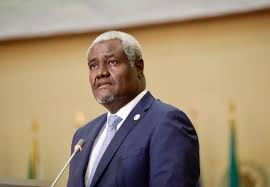African Heads of State and Government committed to revive the nutritional balance of the continent’s exhausted soils.
Making what they called The Nairobi Declaration, the African leaders encapsulated the key discussions, with a focus on fostering multi-stakeholder partnerships and investments to drive policies, finance, research and development, markets, and capacity building for fertilizer and sustainable soil health management across Africa.
Notably, the leaders made 13 commitments namely, to triple domestic production and distribution of certified quality organic and inorganic fertilizers by 2034 to improve access and affordability for smallholder farmers.
According to the leaders, at least 70% of smallholder farmers on the continent be targeted agronomic recommendations for specific crops, soils, and climatic conditions to ensure greater efficiency and sustainable use of fertilizers by 2024.
This will be preceded by efforts to support natural gas producing Member States in fertilizer production to increase their production and ensure availability at stable prices.
The leaders committed to fully operationalize the Africa Fertilizer Financing Mechanism (AFFM) to improve production, procurement, and distribution of organic and inorganic fertilizers, and soil health interventions.
They tasked the AU Commission to mobilize financial and technical resources to execute these commitments in close cooperation with the various existing climate funds.
They said that at least 70% of smallholder farmers have access to quality extension and advisory services on fertilizer and soil health both from public and private extension systems.
In addition, Ministers of Finance were asked to mobilize and allocate adequate resources for the implementation of the recommendations in this Declaration. The declaration also outlined the specific actions to achieve the envisioned outcomes.
Additionally, the AFSH Summit endorsed a 10-year Action Plan for Fertilizer and Soil Health, the Africa Financing Mechanism (AFFM) for the Action Plan, and the Soil Initiative for Africa framework, all of which represent ambitious long-term efforts to systematically enhance the health and productivity of Africa’s soils.
The Summit from the 7th- 9th May 2024 was convened under the theme, Listen to the Land. Participants explored the current condition of Africa’s soils in a bid to implement urgent and appropriate restorative measures. The event gathered over 4,000 participants, including 57 ministers of Agriculture and Foreign Affairs other government leaders, scientists, private sector representatives, heads of development organizations, civil society leaders, and leaders of farmer organizations, who engaged in discussions, partnerships and commitments aimed at rapidly restoring the nutritional value of the continent’s agricultural soils.
Throughout the three-day summit, it was emphasized that years of excessive use without adequate replenishment had resulted in severe depletion of the continent’s soils, hampering their capacity to sustain optimal crop yields.
H.E. Dr. William Ruto, President of Kenya, welcomed the summit’s timeliness, coinciding with the launch of his government’s new framework for sustainable soil management, which will guide investments and efforts to improve the health and resilience of the country’s soil. “60 % of the world’s uncultivated arable land is in Africa, we possess the largest potential for food production and become a global food basket. Prioritizing investments in nitrogen fertilizer production facilities is essential. Secondly, developing mechanisms for real time tracking of fertilizer market trends to ensure timely availability is crucial. Additionally, we need sustainable strategies to make fertilizers more affordable and accessible. Enhancing last-mile logistics for fertilizer distribution is equally critical. Moreover, building farmers’ capacities for effective fertilizer use and soil health improvement is imperative.” he said. Read full speech here.
H.E. Moussa Faki, Chairperson of the African Union Commission, reiterated the imperative of accelerated action on the commitments of the Nairobi Declaration to make up for lost time and advance towards the goals of earlier declarations, including the Abuja, Malabo, and Maputo Declarations, as well as the Comprehensive African Agricultural Development Programme (CAADP). “Some African countries produce fertilizers but we depend mostly on fertilizers, making them very expensive for our farmers. Yet the African Center for Fertilizer Development based in Zimbabwe has been in existence since the 1980s. We must optimise the use of such existing Continental assets to boost local fertilizer production and deliver quality fertilizers to African farmers at affordable prices. This is imperative if we are to improve the Continent’s agricultural sector, key for our food sovereignty and security. These investments should also be reflected in our national budgets.,” he said.
Due to decades of continuous soil nutrient mining and the age of the soils, Africa’s soils, which are among the oldest, globally, have become the poorest in the world. It is estimated that the continent loses over US$4 billion worth of soil nutrients each year, severely risking Africa’s ability to feed itself. Yet, a broad base of African farmers neither have access to fertilizers nor can they afford inputs needed to add life to their soils to reverse the downward spiral of the degradation of the physical environment.




